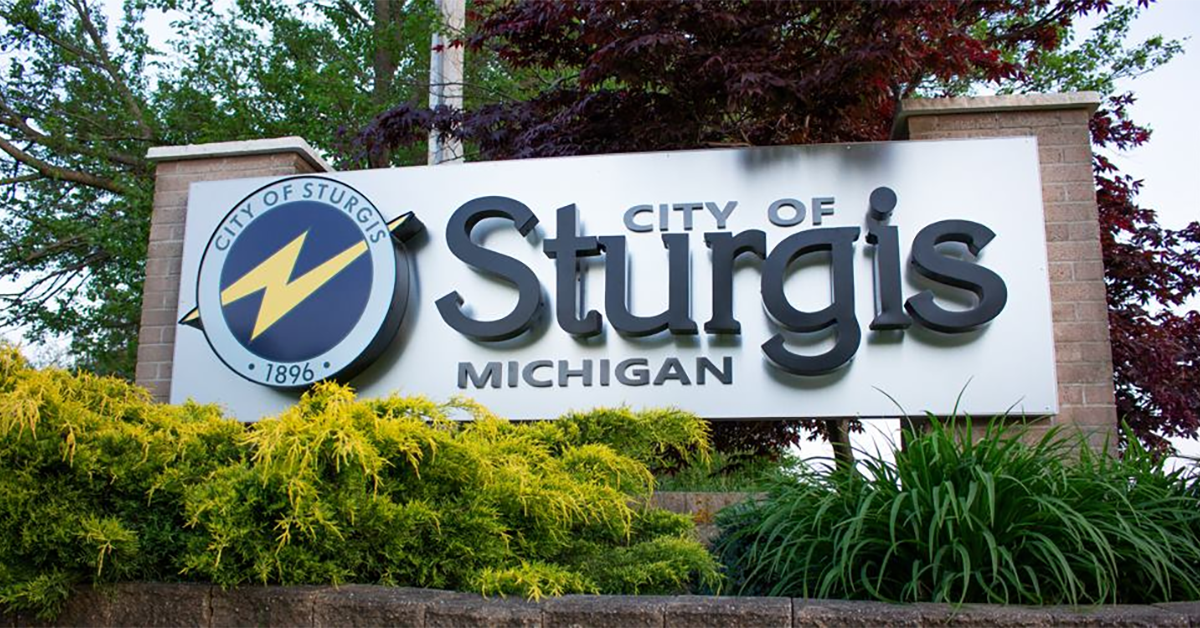Rick Johnson's Alleged Sexual Entanglements: A New Low in Michigan's Political Scandals?

Former Michigan House Speaker Rick Johnson is under fire after federal court filings on Thursday revealed he accepted bribes during his tenure as chair of the now-defunct Michigan Medical Marijuana Licensing Board. These bribes allegedly included cash, private jet flights, and commercial sexual encounters with an individual from the adult entertainment industry.
Johnson, alongside John Dalaly, Brian Pierce, and Vincent Brown, pleaded guilty to federal corruption charges concerning this bribery scheme. Johnson is said to have used his position to give unfair advantages to those offering bribes, such as a favorable stance on license applications and insider information about the Board's proceedings.
The prosecutors recommend Johnson serve at least 71 months in prison with a fine equal to the bribe amount, $110,200. The maximum potential sentence for Johnson is 10 years imprisonment and a $250,000 fine.
During Dalaly's recent sentencing, his attorney emphasized Dalaly's non-involvement with the provision of the sex worker to Johnson. "I wanted to clarify that Mr. Dalaly had no connection with the involvement of a sex worker with Mr. Johnson," stated Raymond Cassar, Dalaly's attorney. Cassar's remarks suggest some had been speculating about Dalaly's involvement.
The prosecutors described the trio's secretive operations, noting that Johnson carried two phones to elude investigators and was cryptically referred to as "Batman" or "our friend". Such behavior, combined with Johnson's interactions with the sex worker, prompted prosecutors to label Johnson's actions as "utterly disgraceful".
The memorandum also mentioned a $2,000 payment by Pierce to the individual who had relations with Johnson. Prostitution, the exchange of money for sexual acts, is illegal both federally and in Michigan. However, Pierce faces no charges related to prostitution due to his plea agreement.
In April, Johnson admitted guilt and committed to full cooperation with federal investigations. His sentencing is slated for September 28th. Part of the unveiled scheme includes Dalaly's $4,000 monthly payments masked as "consulting fees" to Johnson's wife, Janice. Despite these revelations, Janice Johnson remains uncharged, as per Rick Johnson's plea agreement.
Mark Totten, the U.S. Attorney for the Western District of Michigan, hinted that the investigation remains ongoing, with potential additional charges.
Detroit Businessman Sentenced Over Marijuana Board Bribery Scheme

In a recent federal case, a Detroit businessman, John Dalaly, was sentenced to 28 months in prison for bribing the former head of Michigan's marijuana licensing board.
Dalaly, 71, admitted to offering Rick Johnson, the board's chairman, at least $68,200 in cash and other incentives, including two private flights to Canada. Johnson played a pivotal role on the marijuana board, overseeing the review and approval of applications to cultivate and distribute medical marijuana. He held this position for two years until the board was dissolved in 2019.
Notably, Dalaly was an investor in a company that was in the process of securing a license from the board. As part of his strategy to gain an advantage, he made payments over several months to Johnson's wife, purportedly for assistance with the licensing application.
U.S. District Judge Jane Beckering was responsible for handing down Dalaly's sentence.
Sturgis Faces Attempted Break-ins at Cannabis Establishments

In Sturgis, Ryan Banaszak, the Director of Public Safety, has reported a series of break-in attempts at licensed marijuana establishments during the early hours of a recent Sunday.
Banaszak confirmed, "There were three establishments targeted, although details remain limited due to the ongoing nature of the investigation."
Within the bounds of Sturgis, eight retail marijuana dispensary licenses have been issued alongside three grow licenses, as per the records of the Cannabis Regulatory Agency. Of the establishments affected by these recent attempts, Banaszak disclosed that they represent a mix of both retail and grow facilities.
Addressing the broader context, the director emphasized, "Such incidents aren't unprecedented in our state. Currently, we're in active collaboration with various law enforcement agencies across Michigan on this matter. Consequently, to ensure the integrity of our investigations, we're maintaining discretion regarding specific details."
Earlier this year, in March, Michigan's Attorney General, Dana Nessel, signed off on 12 warrants in relation to suspects believed to be connected to a spate of 20 break-ins that targeted marijuana dispensaries in May 2022, as conveyed by her office.
A noteworthy incident from Nessel's report mentioned the collaborative effort between her office and the Calhoun County Sheriff's Department. This collaboration successfully led to the identification of involved individuals after one of them was caught in the act of trying to access the contents of a stolen safe — his method being to drop it from a significant height.
Moreover, Michigan State Police have recently sought the public's help to identify and locate two suspects. These individuals are believed to be responsible for a series of break-ins at marijuana dispensaries in Jackson and Calhoun counties, particularly in the wee hours of May 25th.
IRS Uncovers Deceptive Practices by Michigan Dispensary Entrepreneur

A Michigan resident, Ryan Richmond, has been convicted in a Detroit federal court for evading federal income taxes and obstructing the IRS, along with other offenses.
The evidence and court records revealed that Richmond, from Bloomfield, was the owner of the marijuana dispensary, Relief Choices, LLC, located in Warren, Michigan. Between 2011 and 2014, Richmond primarily used cash for the dispensary's operations. He also funneled customer credit card transactions through an unrelated third-party bank account, obscuring his true business earnings. During 2015 and 2016, Richmond misled IRS officials, notably an IRS auditor assessing his personal taxes. His deceptive practices resulted in over $1.15 million in tax losses to the IRS.
The sentencing for Richmond is set for December 13th. He could face up to five years in prison for each tax evasion charge, three years for obstructing the IRS, and one year for the intentional failure to file a tax return. Additionally, Richmond may be subjected to supervised release, restitution, and other financial penalties. The final sentencing will be decided by a federal district court judge, taking into account the U.S. Sentencing Guidelines and related statutory considerations.
The announcement came from Acting Deputy Assistant Attorney General Stuart M. Goldberg of the Justice Department's Tax Division. The IRS Criminal Investigation division handled the probe, with Trial Attorneys Mark McDonald and Christopher P. O'Donnell from the Tax Division leading the prosecution.
Greenhouse of Walled Lake's Battle Against Rising Counterfeit Currencies

The owner of Greenhouse of Walled Lake, a dispensary in Michigan, Jerry Millen, has expressed increasing concern over the prevalence of counterfeit money being used at his establishment. Over the recent months, he has reported significant losses amounting to hundreds of dollars every week due to fake currency transactions.
"In the past, we've occasionally encountered counterfeit bills, but the situation has escalated dramatically in the last two to three months," explains Millen. This surge in counterfeit currency usage has posed a significant financial threat to businesses like his.
An underlying issue compounding the problem is that, due to the federal prohibition of cannabis, Michigan-licensed cannabis dispensaries are barred from accepting credit card payments. As a result, they are more susceptible to counterfeit currency exchanges.
Richard Convertino, a former federal prosecutor, sheds light on the severity of counterfeiting. "The U.S. government classifies counterfeiting as an act tantamount to warfare," he notes. Convertino further explains that while counterfeit bills can sometimes be quite convincing, especially during a busy business day, there are certain indicators that can help identify them. The texture of the money is often the most telling sign. "Genuine currency has a distinct feel due to its cotton and linen blend. It's not just regular paper. If something about the bill feels off, there's a high likelihood that it's counterfeit," advises Convertino.
For Millen, the ultimate solution to this growing concern is clear: federal legalization of cannabis. He argues that it's contradictory for businesses like his to dutifully pay taxes and contribute positively to the community, yet only be permitted to accept cash, leaving them vulnerable to counterfeit operations. "We're responsible citizens, diligently paying our taxes. But the irony is, we're restricted to cash transactions which expose us to such frauds," Millen points out. "A move towards federal legalization would not only resolve this counterfeit issue but would also validate the cannabis industry as legitimate."
It's also crucial to note that Michigan's legal framework has stringent penalties for those caught in possession of counterfeit money with the intent to use. Such offenses may lead to a felony charge, potentially resulting in up to five years of imprisonment or hefty fines. This serves as a stark reminder of the legal implications surrounding counterfeit currency and the broader issues facing the cannabis industry in the region.
From "Kingpins" to Legal Titans: The Cannabis Battle Heats Up in Menominee

The once-feared "kingpins" of yesteryears are now legally armed investors. While they've traded bullets for lawsuits, the financial stakes remain high.
In Menominee, a quaint city nestled by the northwestern shores of Lake Michigan, allegations of murky ethics, clandestine dealings, and potential conflicts of interest are rife.
Although the Menominee cannabis market doesn't seem too promising at first glance, it's pegged to be worth tens of millions. The high demand isn't primarily driven by the city's residents but by its proximity to Wisconsin, which hasn't legalized the retail sale of recreational cannabis and might not for a few years.
This strategic location has fueled a booming cross-border cannabis business.
Michigan's Cannabis Licensing Landscape
Michigan places no cap on the number of cannabis businesses within its communities. Local governments or voter initiatives shape the licensing processes. Many Michigan regions have enacted bans on cannabis enterprises. However, Menominee reversed its stance in October 2020, launching a scoring system for applicants and paving the way for two recreational cannabis stores.
Among the 14 applicants, Rize (operating under First Property Holdings) and the Fire Station clinched the licenses. Those unsuccessful alleged the selection was biased and subsequently sued Menominee.
These companies, including prominent names like Lume, Higher Love, and Green Pharm, found their efforts thwarted in court. Yet, they weren't done.
Legal Resolutions and Continued Conflict
Before the legal tussle concluded, these cannabis companies proposed a settlement to the city council. They offered to withdraw the lawsuits in exchange for business licenses. The council passed the settlement, 6-3, after the court's decision, leading to another lawsuit alleging conspiracy between Menominee politicians and certain cannabis firms.
Councilwoman Marineau, among the dissenters, remains perplexed over the council's insistence on issuing licenses to companies that previously sued.
Alleged Ethical Missteps
The lawsuit points to potential ethics violations. It claims some cannabis company lawyers, notably from OI Holdings, had undue communications with council members who later backed their settlement. A notable link exists between an attorney from OI Holdings and Councilman Josh Jones, brothers. While this potential conflict was declared, it wasn't deemed problematic by the council.
A Tug-of-War With the Voters
The council's decisions did not go unchallenged. Menominee residents, spearheaded by Adam Michaud, sought to bring the matter before voters. Yet, maneuvers by the city council appear to have sidelined this initiative, sparking another legal challenge alleging a violation of the Open Meetings Act.
Expert Opinion
Commenting on the ongoing saga, John Chamberlain, a former ethics professor at the University of Michigan, expressed shock. He underscored the importance of transparency, echoing Justice Brandeis's sentiment that "sunshine is the best disinfectant."
While legal maneuvers dominate the current landscape, Chamberlain feels that the essence of democracy and ethical governance shouldn't be lost amidst the legalities.


 Helpful Links
Helpful Links